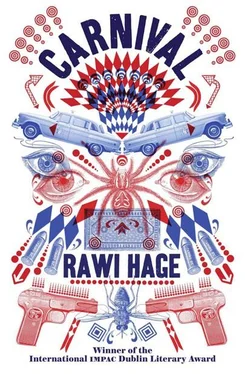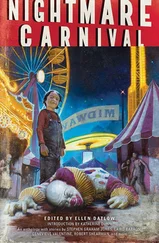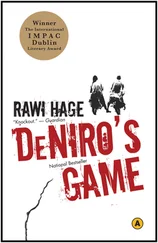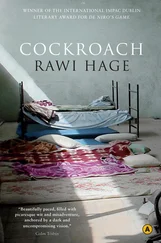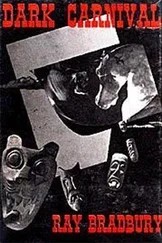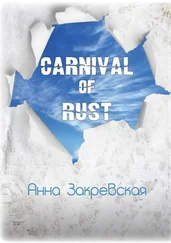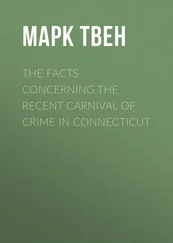But then one day, Mimi got very drunk and saw the handsome ship’s doctor, and her eyes were transfixed, her lips quivered, and her thighs wiggled against the lower metal ramps of the ship. She forgot the doll and her age and smiled, held her doll under her arm, lit a cigarette, and made rings of smoke sail above the ocean winds. Dolphins jumped inside the white hoops, to the delight of the passengers, and a few clouds magically descended to join the circle of smoky sighs trailing through the tropical heat.
The doctor, who saw Mimi’s provocative gestures, was alarmed and perturbed by his own desires for the little girl. He kept an eye on Mimi and followed her until, one day, he caught her standing in the engine room beneath the belt of the mechanic, giving him some steamy head. At first he thought it was a case of child molestation, but then, after conducting an investigation into the matter, he realized that Mimi was not the innocent child that she pretended to be, nor was the Contessa Tambbar Koussa a real White Russian. To make things even more insulting, this so-called Contessa was found to be an Arab, with a fabricated Arabic name that, translated, meant “the countess with the swollen vagina.” The Contessa was interrogated about her fake passport and her impersonation of an aristocrat, and she was threatened with prison. Fearing a long sentence, she made a deal with the authorities to reduce the charges against her by telling them of the diamond hidden in Mimi’s doll.
Mimi was arrested and sent to jail for life. In jail, she was harassed and beaten by the big women in the cell, who made her do the circus dance, as they called it, and walk a tightrope tied between two bed rails. In the showers, a pedophile guard molested her and called her names. Early one morning, when everyone was asleep and before the bell rang and the count of the prisoners was made, Mimi untied the rope that she had walked the night before, to the cheers, taunts, and laughter of her cellmates, secured it to one of the high bars of her cell, and hanged herself. That morning, there was no applause in the room, only silence and the faint squeaking of the rope, and the light, and the quiet swings of a small body.
HAT
WHEN I ARRIVED home, I parked in the garage, then I opened my trunk and pulled out the quilt I’d found lying on the back seat. I took all the cash in my wallet and wrapped it inside my hat, and I neatly folded the quilt and placed it on the back seat with the hat on top.
I slept all morning.
In the afternoon I went down to my car. The quilt in the back seat was unfolded and the hat and the money were gone.
I took my car, left the lantern unlit, and decided to drive to nowhere. It was rush hour, and at that time a driver could pick up passengers easily, but I decided to leave the centre and seek the river. I drove until my wheels took me to the bridge where Otto had once dwelt and drunk and slept. The spot, he used to call it.
But the spot was not his discovery or Tammer’s, it was Fredao’s. Otto and Fredao used to spend nights there drinking and arguing and even, if one were to take them seriously, conspiring. And Tammer, while he waited for his mother to come back from her walks through the night, would sometimes stay awake with them, listening to them talk politics and power. Once Fredao pulled out his gun and showed it to Tammer. Here, son: I am not your fucking father just because I call you son, but I know who is. You are the bastard son of an Arab. Those Arabs were the first to come and enslave my people and sell us to the Portuguese. You, son, you are one part Spanish genocider and one part slave-driver. Bullshit, all that religious boasting about mercy to the slaves, it is all bullshit. A slave is a slave. There is no such thing as mercy to a slave like those books of revelations will tell you. Here, son, come over here. I want to teach you power so you will always be free. Now hold the gun like that, aim, and shoot the bottle.
The gunshots must have been heard by the sailors on the cargo boats, but either they didn’t give a damn or they, like those on the shore, were drunk, wobbling with the motion of the water and waiting with boredom for the departure of their ships.
On the weekends Tammer would watch these sailors from beneath the bridge, stumbling drunk, singing the same songs all together. It wasn’t their accents that surprised him most, nor the uniforms with the lost ties and crooked hats, but the fact that they all knew the same songs. No matter how drunk they were, they sang and conformed. Fredao would curse the sailors. Filthy white-trash bastards! he would say. A few hundred years ago, they would have been chasing me to put chains around my neck and obliging me to row their filthy, rat-infested boats.
Some of these sailors would have food in their hands and Tammer would look at them with envy and hunger. Meat, Tammer would say, they are eating meat. He would point, and Fredao would spit and say, Yeah, filthy cannibals, they would eat humans as well.
What are cannibals? Tammer asked.
Humans who eat other humans, Fredao replied.
BEFORE I ARRIVED at the bridge, I stopped at a store and bought coffee and cakes. Then I drove down to the spot, parked, and got out. I saw two boys sleeping in a shelter of cardboard boxes and leaning against each other, sharing a blanket. It was Tammer and his friend Skippy the Bug. In a small barrel beside them, a few pieces of coal were glowing faintly beneath burnt pieces of wood. I stood there and waited, smoking and drinking my coffee. And then I moved closer. There were many empty beer bottles and a large bottle of Johnnie Walker, half gone. I was just about to kneel down and wake Tammer when I saw Skippy flip his side of the blanket open and point a gun at me.
Skippy, I said. It’s me, Fly, put your gun down.
He immediately began to giggle, and Tammer, as if he had anticipated everything in his dreams, also started to giggle from beneath the blanket.
Fly, do you have fifty bucks? Tammer said, his voice muffled, and they both laughed.
Wake up, I said to Tammer. And you, Skippy boy, point that thing away from me. Where did you get that gun? I asked him.
My inheritance, Tammer said. What’s up, Fly?
Drink your coffee and let’s go for a walk.
Too cold for a walk, man. Shit, I got to piss. Fucking booze, a massacre, motherfucking massacre that I have to piss out.
While he was pissing against a pillar, I asked him how his mother was.
Not good, he said. She’s still in the hospital. I’m going to visit her tomorrow.
I’ll come, I said. Which hospital is she in?
The one on the top of the mountain there, he said, and flicked himself, buckled up, and asked Skippy to imitate some lady’s voice again.
Skippy started to shout in a high-pitched voice, Leave those Coke cans alone, what are you doing here!
Hey, Fly, Tammer said as I turned to walk back towards my car, could you buy us some hamburgers? And Skippy repeated, Hamburgers.
Not today, I said. Got to go back to work.
THE NEXT DAY I went to the hospital to see Linda. And there was Skippy, smoking and juggling rocks in the parking lot.
Is Tammer inside? I asked.
No, he went to buy cigarettes.
Did he already visit?
Yeah.
How is his mother?
Not good.
Did you go in?
No.
Where do you come from? I asked the bug.
The moon, he said, and laughed. I come from the moon.
You have the gun on you?
He laughed.
Is that why you waited outside?
Yeah, outside, he said. Tammer is coming. Tammer is coming, he said, and laughed.
How is your mother? I asked when Tammer had reached us.
He ignored my question. He just passed me and kept going and Skippy trailed along.
THE WORD ON the street had it that Fredao, after damaging Linda, had lost the respect of his girls, and that they had rebelled against him. A new pimp had already taken over Fredao’s corner and no one had seen him for days. Rumour had it that he’d gotten ill and nostalgic and decided to go back to Angola with a suitcase filled with money.
Читать дальше
